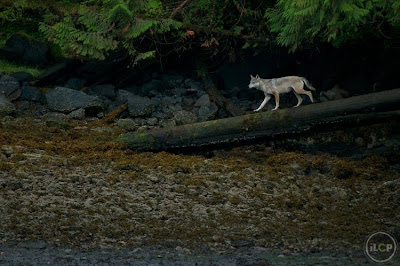
***
Canada’s proposed Northern Gateway oil pipeline, a project by Enbridge, Inc., from the Alberta tar sands to Kitimat, and the ensuing supertanker traffic would have a catastrophic effect on Canada’s Great Bear Rainforest, said a group of the world’s leading conservation photographers today.
After two weeks, iLCP's team of photographers have emerged from the Great Bear Rainforest of British Columbia's north coast armed with compelling and provocative photographs and film. Throughout the next several months, their images will travel around the world to tell the story of this this incredible and threatened place — and the people and wildlife that live there.
migrating+up+river+to+spawn,++Great+Bear+Rainforest,+British+Colombia,+Canada.jpeg)
“The International League of Conservation Photographers (iLCP) receives dozens of requests a year to bring our photographers and filmmakers to endangered landscapes all over the world, but British Columbia’s Great Bear Rainforest stands head and shoulders above the others,” said iLCP founder and president Cristina Mittermeier. “The ecosystems here are so interconnected that an oil spill would devastate not only the landscapes and seascapes but the communities that rely on them for their survival.”
Internationally renowned photographers from Spain, Germany, South Africa, Mexico, the United States and Canada have just returned from documenting the Great Bear Rainforest. Known as a Rapid Assessment Visual Expedition (RAVE), the program is designed to bolster conservation efforts with world-class imagery in order to protect the planet’s most unique ecosystems. Photographers including Paul Nicklen, Florian Schultz, Daniel Beltra, Jack Dykinga, Tom Peschak, Joe Riis and Cristina Mittermeier took part in the iLCP's RAVE.

© Ian McAllister, Pacific Wild and iLCP
Under the water, on land and in the air, this team of photographers brought home some of the most incredible images to date from this region. Marine photographers and filmmakers went underwater to film whales, sea lions and other wildlife that stand to be lost from an oil spill. On land, photographers trekked through the rainforest to capture the iconic spirit bears, black bears, salmon, wolves and incredible landscapes on film.

Along with support from the conservation community, the BC Coastal First Nations have declared unified opposition to oil tankers in their traditional territories.
"Our laws require us to accept both the right to protect our lands and the responsibility to do so,” said Gerald Amos, President of the Coastal First Nations. “This oil madness has to stop, and this is the place and time for us all to embrace our responsibilities. Now is time to stop the proposed supertankers from soiling our coast and robbing us of our livelihoods."

For more information, please contact:
Marshall Maher, iLCP, 202.262.3369 or maher.marshall@gmail.com
Ian McAllister, Pacific Wild, 250.882.7246 or ian@pacificwild.org

therefore, I would like to thank you for the efforts you have made in writing this article.
ReplyDeleteatunbi phography